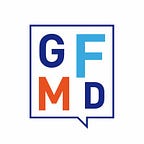THE DYNAMIC COALITION HUB: FOR PUBLIC INTEREST JOURNALISM RESEARCH AND INSIGHTS
Guest post from Corinne Podger, Director and Principal of the Digital Skills Agency and qualified trainer for the BBC and Reuters.
In the two years since it was launched, the GFMD Dynamic Coalition hub has evolved into a lively platform for conversations about media sustainability. Ahead of World Press Freedom Day 2021, here are some recent highlights of our conversations. You can join us by signing up to the mailing list, and read our overview and action plan here.
As journalism thinkers explore different pathways to leverage financial support for journalism, the Hub has become a superb forum to discuss the pros and cons of different approaches, and seek shared understanding and definitions of concepts such as “public interest news”.
Unsurprisingly, the recent news ban imposed by Facebook on Australia prompted a flurry of discussion. One topic of particular interest is the potential value of taxes in funding public service journalism; whether in the form of taxes that might be imposed upon tech firms like Facebook and Google, or offered as deductions for individuals.
We heard from members involved in formal initiatives in Australia — like the Digi Australian Code of Practice published in February — and responses from the big tech sector, such as the Digital Trust & Safety Partnership launched in February by Facebook, Google, Microsoft, Twitter, Discord, Pinterest, Reddit, Shopify, and Vimeo.
We have also been able to tap into international perspectives on Australia’s media bargaining code. They include this German perspective published in Verfassungsblog by Giovanni De Gregorio, Oreste Pollicino, and Elena Perotti, this piece by Timothy Karr on how the Australian situation is being closely watched in the United States, this interview with Microsoft President Brad Smith, by Hub member Brier Dudley at the Seattle Times.
Members also shared a country-by-country snapshot of proposed regulation against Facebook and Google outside Australia, published in February by PressGazette in the UK, and initiatives to support public interest journalism being launched elsewhere, such as the $NZ55 million fund created by the New Zealand government in February.
Beyond big tech issues, members have used the Hub to keep abreast of other current research and insights, like this CJR piece by Anya Schiffrin on methods for funding local news, this New York Times article about social media regulation in the context of misinformation and disinformation, and this recent FOJO policy brief on progress toward sustainable journalism in Sub-Saharan Africa.
We also share reports on events about journalism and democracy, press freedom, and current threats to media sustainability, such as the launch of GFMD Impact earlier this month. And in March, Hub members received links to superb resources on women’s participation in journalism, as part of International Women’s Day — including links to GFMD webinars on Gender Conscious Leadership in Media and Promoting Women’s Voices in News.
With a truly world-embracing membership, the Dynamic Coalition Hub has become a valuable space to collectively evaluate national-level opportunities and barriers to different solutions currently being explored by governments, advocacy organisations, and by newsrooms as they independently look to diversify income streams.
Corinne Podger is the Director and Principal of the Digital Skills Agency. She is a qualified trainer for the BBC and Reuters, and holds an MA from the University of Cambridge (UK). She also serves as a judge for the WAN-IFRA World Digital Media Awards.
